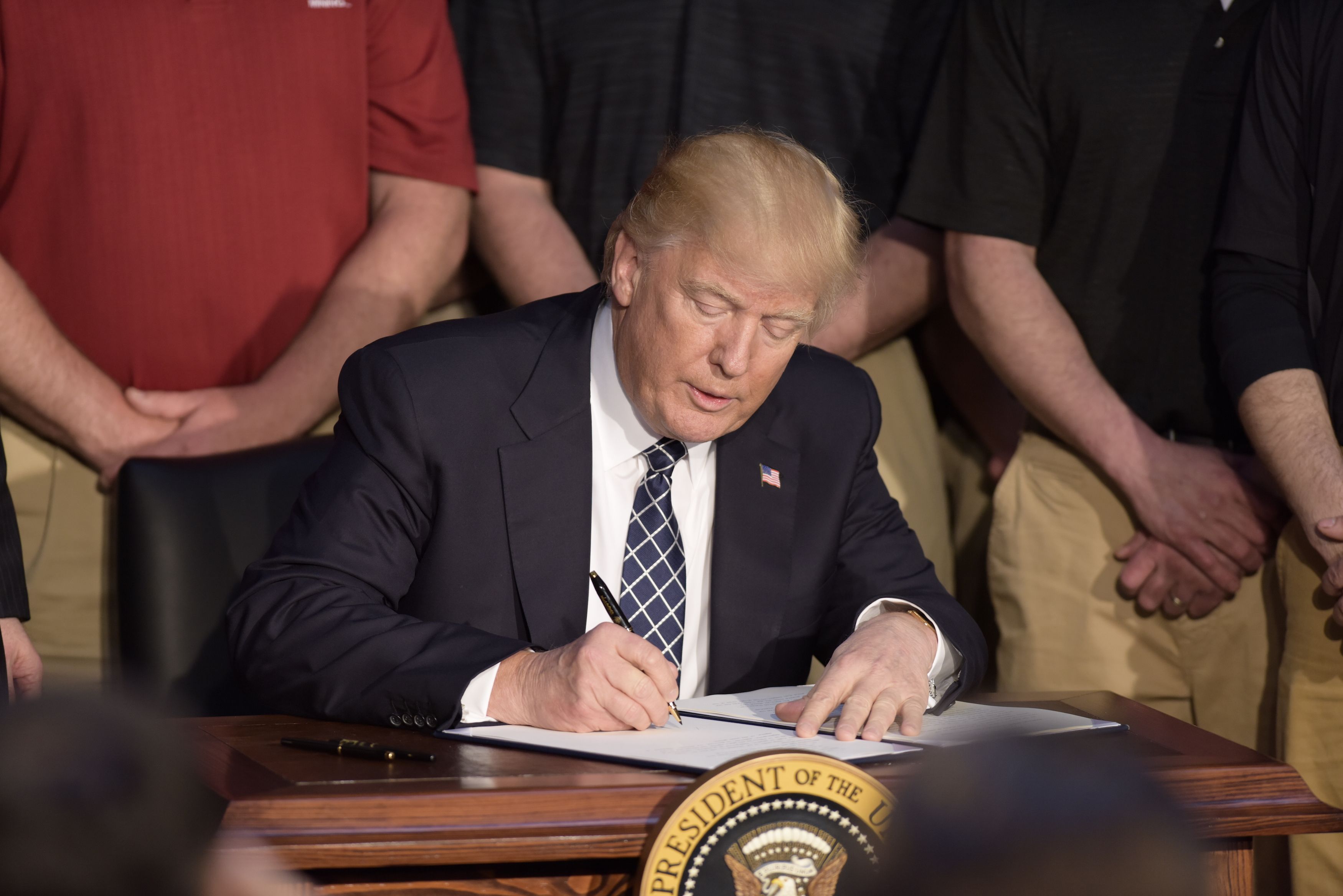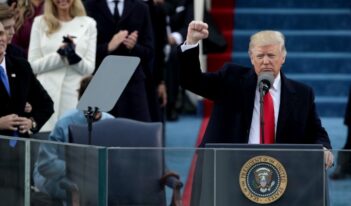
Both President Trump and environmental advocates overstate the effects of repealing the Clean Power Plan.
President Donald Trump has ordered the U.S. Environmental Protection Agency (EPA) to take the steps needed to repeal President Barack Obama’s primary weapon to head off climate change. The Obama Administration’s Clean Power Plan (CPP) sought to fulfill the U.S. commitment to reduce its emissions of carbon dioxide (CO2) as part of its contribution to the Paris Agreement. The CPP seeks to reduce emissions of CO2 by requiring electric utilities to accelerate their existing plans to substitute low carbon natural gas and carbon-free wind and solar for high carbon coal as power generating sources.
Environmental advocates have decried President Trump’s attempt to repeal the CPP on the basis that repeal will eliminate the main hope the U.S. has of combatting climate change, while President Trump claims that repealing the CPP will further the goals of attaining energy independence and of restoring the coal mining jobs lost over the last few years. Both sides of this debate are overstating the effects of a repeal.
The CPP never had any chance of halting climate change. Even if it survived judicial review and helped the U.S. meet its Paris Agreement commitment, it would at most reduce the rate at which climate change takes place. Even that modest accomplishment was unlikely.
The success of the CPP depended critically on several key factors. As my colleague, Emily Hammond, and I discuss in a recent paper, these factors include (1) judicial decisions that uphold the legality of the CPP; (2) successful implementation of the CPP; and (3) the willingness of other countries to fulfill their Paris Agreement commitments.
The last of these factors—other countries’ performance of their Paris Agreement commitments—lies beyond the control of the U.S. and seems unlikely to be satisfied, given the disappointing performance of other countries. The U.S. has reduced its emissions of CO2 by more than any other country over the last five years, while most countries have massively increased their emissions during that time.
The CPP raises two serious legal issues. The U.S. Supreme Court was sufficiently concerned about the legality of the CPP that it ordered an unprecedented stay of the CPP’s implementation in February 2016. That order necessarily was based on the Justices’ belief that the challengers to the legality of the CPP are likely to prevail when the Court addresses the merits of the case. Of course, even after it has stayed an action, a court can change its mind about the legality of an agency action when it considers the merits of the legal issues. Such a change of mind, however, is highly unlikely, particularly for a Court that now includes Justice Neil Gorsuch.
Even if the CPP were to survive the process of judicial review, its successful implementation would depend on two other contingencies. It would require a major change in the method of governing the wholesale market for electricity that the Federal Energy Regulatory Commission has been using for decades. It would also require a change in the legal regime governing construction of new transmission lines to make it possible to expand the capacity of the U.S. transmission grid dramatically over the next few years. The first contingency is speculative; the second is highly unlikely.
Although the concerns expressed by environmental activists are overstated, the claims made by President Trump are preposterous. Repeal of the CPP will have no effect on energy independence. Coal, natural gas, wind, and solar are all domestic energy sources, so promoting one over another will have no effect on energy independence.
Repeal of the CPP will not bring back the jobs of coal miners for two reasons. First, the trend to replace coal with natural gas will continue. That trend is driven mainly by economics. Fracking has created a gas supply so large that gas is cheaper than coal. Second, even if a repeal of the CPP produces some slight increase in demand for coal, that increased demand would not result in the reopening of the underground mines that employed large numbers of coal miners. It would be met by increasing production from the open-pit mines that rely on heavy equipment to extract coal and that employ very few miners.
Ironically, the only action that might put coal miners back to work in large numbers would be implementation of the ban on fracking that was proposed by U.S. Senator Bernie Sanders (I-Vt.) during his campaign for the presidency. Such a ban would increase the price of gas dramatically and would make coal a far more attractive source of electricity. It seems unlikely that President Trump will embrace Senator Sanders’ proposal.




